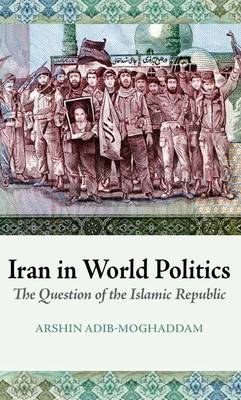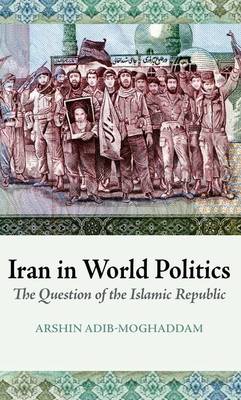
- Afhalen na 1 uur in een winkel met voorraad
- Gratis thuislevering in België vanaf € 30
- Ruim aanbod met 7 miljoen producten
- Afhalen na 1 uur in een winkel met voorraad
- Gratis thuislevering in België vanaf € 30
- Ruim aanbod met 7 miljoen producten
Zoeken
Iran in World Politics
The Question of the Islamic Republic
Arshin Adib-Moghaddam
Paperback | Engels
€ 36,95
+ 73 punten
Omschrijving
Why is Iran continuously in the news? How has the Islamic Republic developed ideologically since the 1979 revolution? What are the best ways of comprehending the country at this critical juncture in its history? These are some of the questions at the heart of Arshin Adib-Moghaddam's book, which offers novel methodological and theoretical insights in explaining the foreign relations and domestic politics of post-revolutionary Iran. From the nuclear issue, to the perpetual stand-off with the United States, from the future of Iranian democracy to Iranian-Arab relations, from American neo-conservatism to Islamic utopian-romanticism, from Avicenna to Ayatollah Khomeini, the author guides the reader through the complexities that bedevil our understanding of contemporary Iran. In exposing the limitations of mainstream representations of the country and the wider Muslim world, Iran in World Politics makes a powerful case for 'critical Iranian studies', for a new system of thought that pluralises both the way we see Iran, and the international politics enveloping the country.
Specificaties
Betrokkenen
- Auteur(s):
- Uitgeverij:
Inhoud
- Aantal bladzijden:
- 288
- Taal:
- Engels
Eigenschappen
- Productcode (EAN):
- 9780199326624
- Verschijningsdatum:
- 9/11/2010
- Uitvoering:
- Paperback
- Formaat:
- Trade paperback (VS)
- Afmetingen:
- 137 mm x 213 mm
- Gewicht:
- 362 g

Alleen bij Standaard Boekhandel
+ 73 punten op je klantenkaart van Standaard Boekhandel
Beoordelingen
We publiceren alleen reviews die voldoen aan de voorwaarden voor reviews. Bekijk onze voorwaarden voor reviews.











